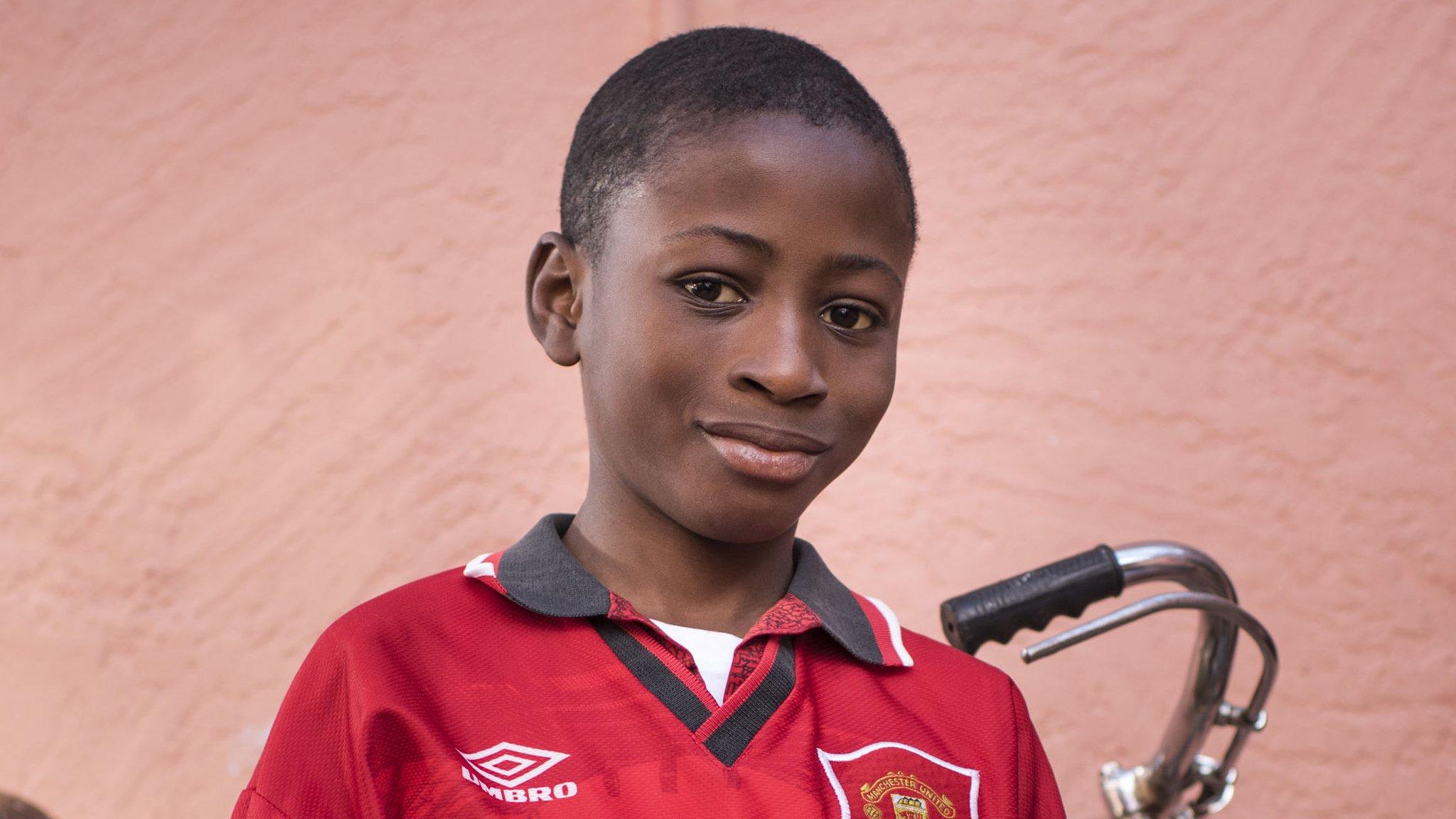Dark Money: The TV drama that became topical by accident
- Published
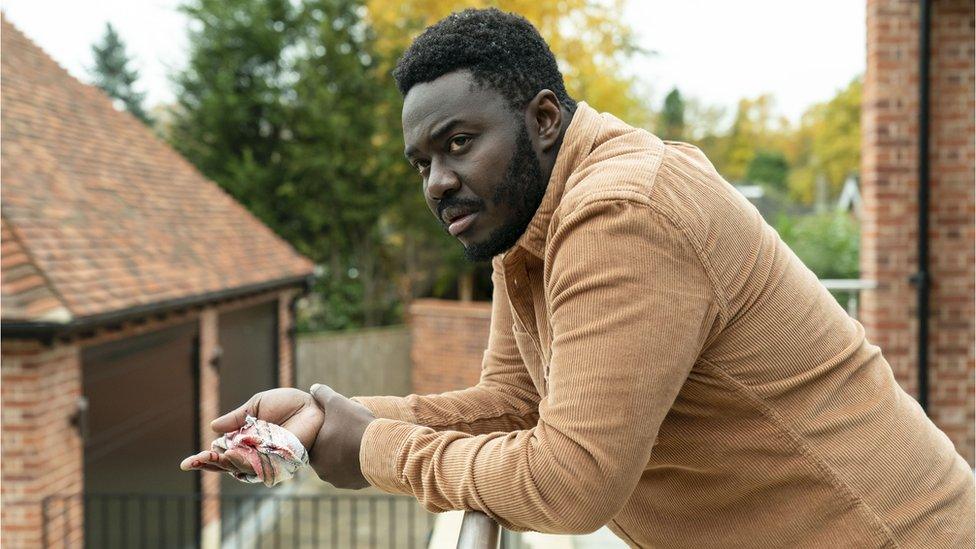
Babou Ceesay plays Manny, the father of a boy who is abused by a Hollywood producer
Two years ago, screenwriter Levi David Addai had an idea for a new fictional TV drama. But within months, the storyline suddenly felt much more realistic.
BBC One's Dark Money tells the story of sexual abuse in Hollywood, and the efforts to cover it up.
When 13-year-old Isaac Mensah is plucked from his regular life at school in London to star in a major new movie, his family is delighted. But while he is in the US shooting the film, a powerful studio executive takes advantage of him.
The producer then attempts to buy the young boy's silence, offering his family £3m if they sign a non-disclosure agreement (NDA) promising to keep quiet. The rest of the series explores the impact of the decision they make.
Of course, in the time it's taken to bring the series to the screen, several real-life allegations have been made against high-profile figures, and the widespread use of NDAs has been the subject of debate.
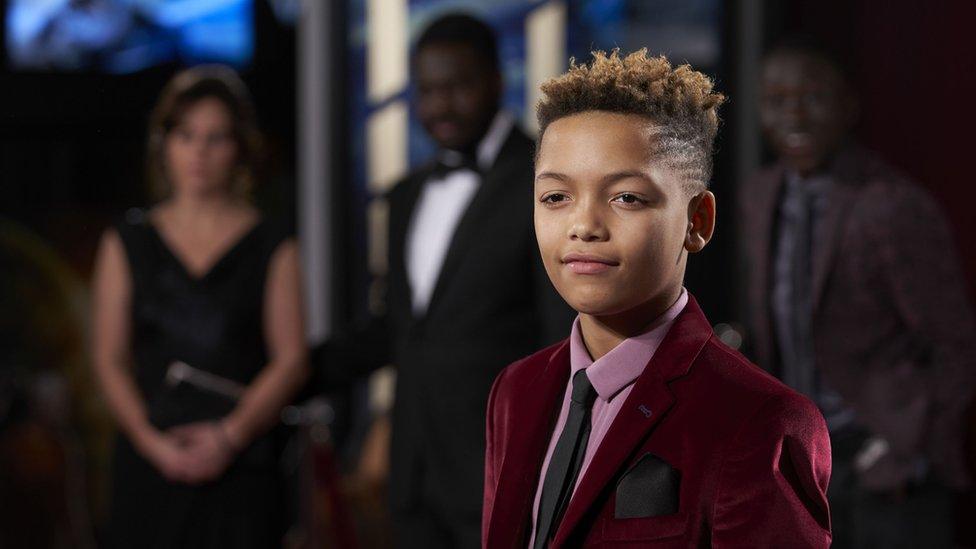
A 13-year-old London schoolboy, Isaac Mensah, is chosen for a Hollywood film role
In October 2017, producer Harvey Weinstein was accused of sexual abuse by several women - allegations which he denies. The case sparked the #MeToo movement and it came to light that many women who had worked with him had signed NDAs, external.
Then, earlier this year, a documentary about the late Michael Jackson called Leaving Neverland alleged sexual harassment of two underage boys by the singer.
But, explains Addai, Dark Money was in progress before either the recent Weinstein or Jackson allegations hit the headlines.
"I began developing the idea and writing the script before those stories actually became mainstream," he says. "So I was in this weird position where I was doing this thing that was totally original, as it were, and as it was getting closer to getting green lit, the news just exploded.
"And people were like, 'Wow, have you heard?' But for me personally, I was like, 'I know these things are going on, this is not big news for me'. But I was fortunate enough that the BBC allowed me to continue telling my story."

What are non-disclosure agreements?

Sometimes known as "gagging orders" or "hush agreements", NDAs typically prevent staff and ex-staff making information public.
Many companies get employees to sign them as a matter of course, as they can apply to commercially sensitive details such as inventions and ideas, or anything likely to damage an organisation's reputation.
NDAs have also been used to prevent employees discussing in the media allegations of misbehaviour in the workplace after a settlement has been agreed.
They're signed when employees and organisations resolve a dispute - such as a claim of wrongful dismissal - without going through a full tribunal hearing.

While the news headlines around abuse and non-disclosure agreements could easily have been a source of research for Addai, he says he decided instead to stick to consulting child psychologists during development. What he found was that, if anything, his proposed storyline hardly scratched the surface of the world of abuse and NDAs.
"The production company were good at arranging meetings with Tavistock Children's Services, speaking to child psychologists, who explained that this is nowhere near what's been happening in our country right now," he says. "To hear these guys lay out raw their kind of passion to really do something about it, they're the real heroes really.
"And make it unique as well. Isaac's story is Isaac's story. There might be similarities [to news events], but I hope once people get to see the entirety of the series they can see there is hope there, that it's not the end of your story, there is a way you can progress."
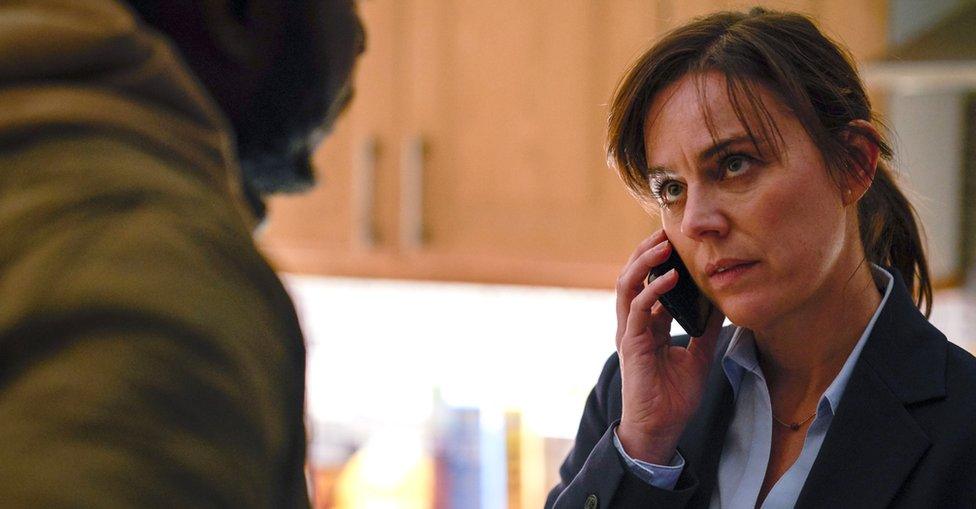
Manny and Sam (Jill Halfpenny) are seen grappling with their consciences
In the series, Jill Halfpenny plays Isaac's mother Sam, who grapples with her own conscience over what they should do after the abuse takes place. Isaac's own wish that nobody else finds out effectively encourages the parents towards signing the NDA.
"There's a decision that Isaac makes which is he doesn't want anyone to know [about the abuse]," Halfpenny explains. "Of course, as parents you want to feel like you'd do everything possible to protect your child, but in some ways it suits Sam and Manny that he doesn't want anyone to know, because they can then just put it in a box, and see if they can survive doing it that way."
Dark Money arrives hot on the heels of Bitter Wheat - a new David Mamet play which opened in London last month. Its plot was inspired by the Harvey Weinstein scandal, making it the first West End play to tackle the subject.
"I don't think it's going to be a topic that just sort of fades away, nor particularly should it be," the show's star John Malkovich told BBC News at the time.
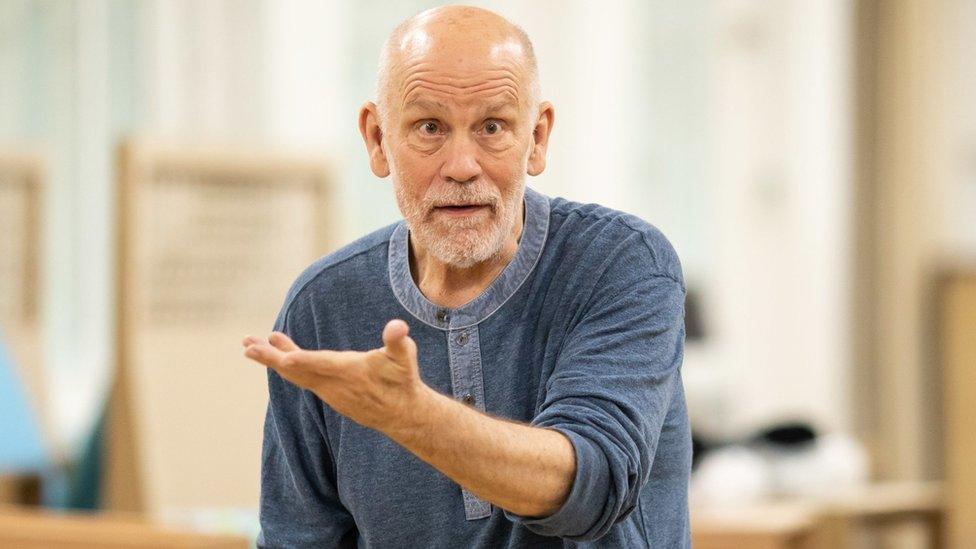
John Malkovich in rehearsals for Bitter Wheat - which was inspired by the Weinstein scandal
For Addai, who has previously written Damilola: Our Loved Boy, the Bafta-winning dramatisation of the murder of Damilola Taylor, the biggest inspiration for Dark Money came from his own experience as a father.
"I enrolled my daughter in a drama school, for an hour and a half on a Saturday, which was great for me because I could catch up with work. It was interesting listening to the promises that'd be made by the drama school leaders.
"One of the big selling points would be a showcase in the West End or there being opportunities for auditions for soaps like EastEnders, and it was interesting watching the parents absorb that. And me being in this industry, I know that it's not that straightforward. And I was just really interested to see how easily trusting the parents were to these people that they didn't know, they just saw them as part of this arena of performing arts."
Dark Money begins on BBC One on Monday 8 July at 21:00 BST.
- Published7 July 2019
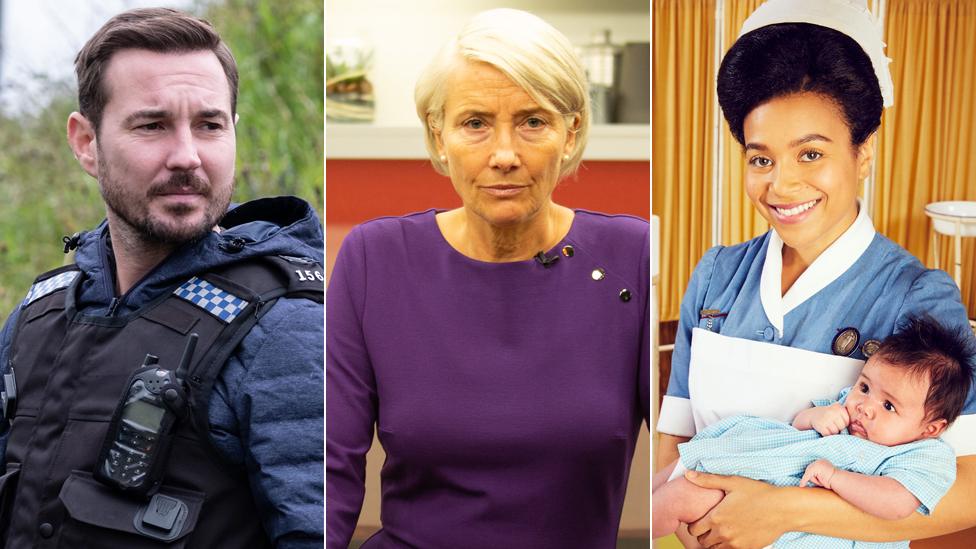
- Published28 January 2019
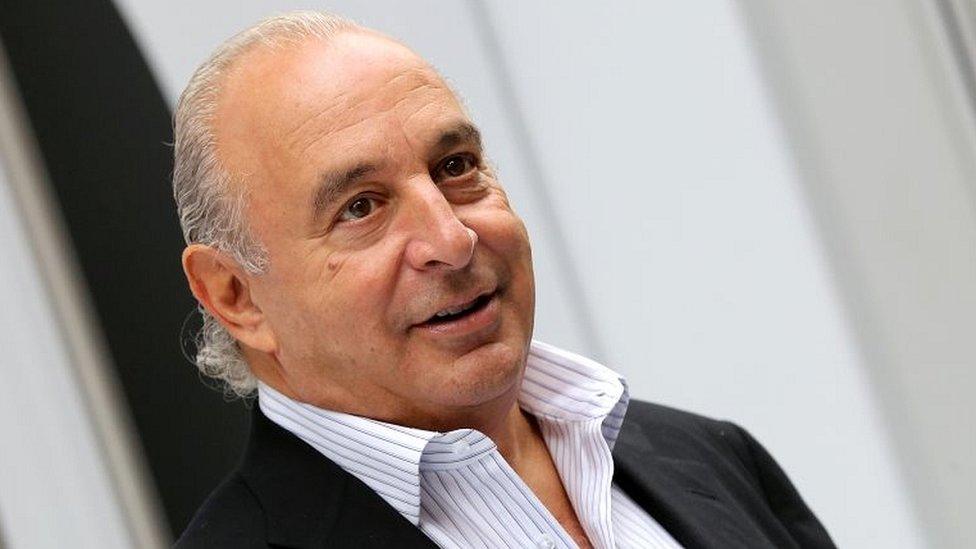
- Published7 November 2016
